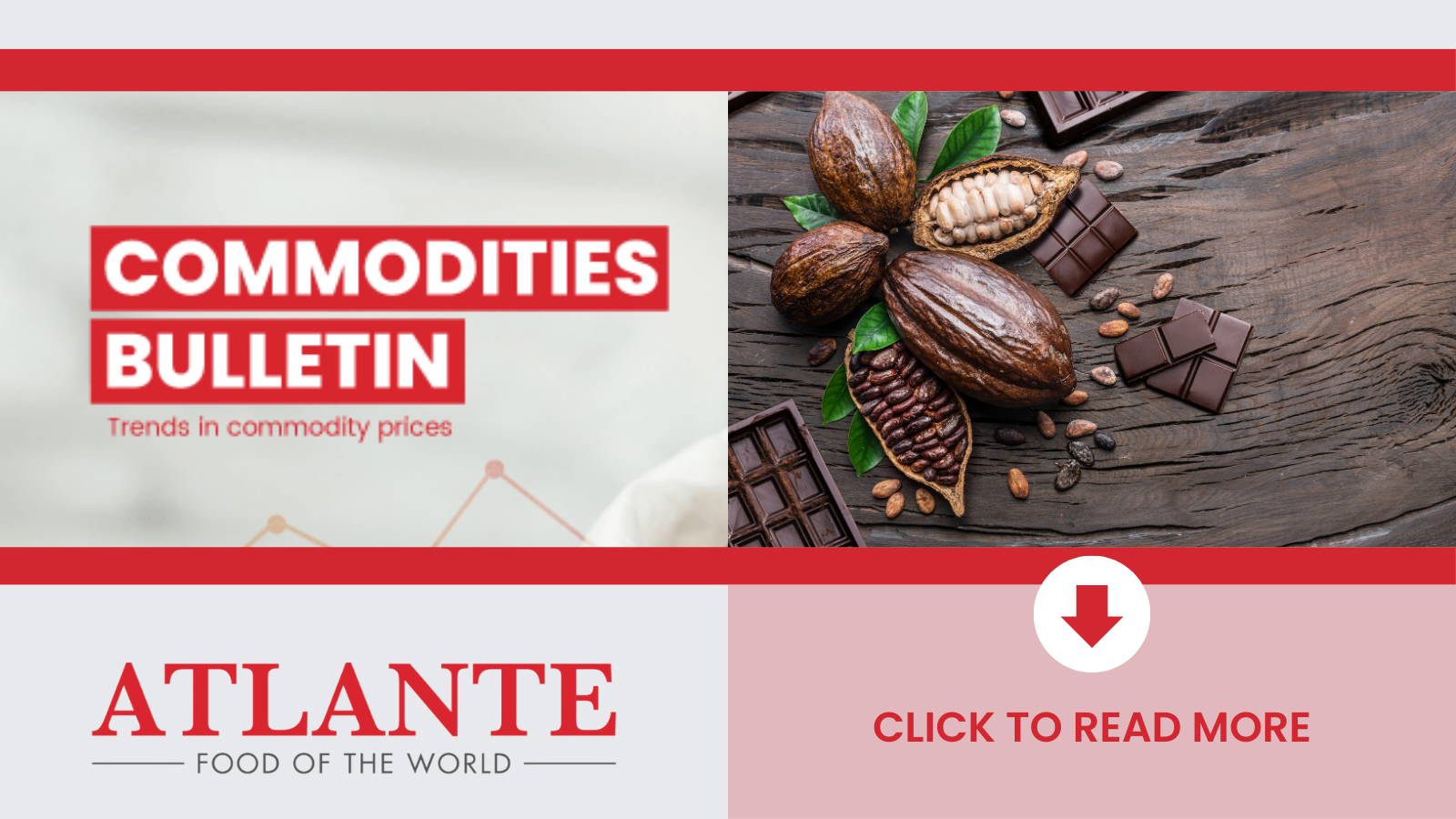Vegetable Oils: Palm, Sunflower and Coconut, Olive
See what’s on the horizon thanks to Atlante’s commodity market performance insights for UK buyers...
Thank you for visiting us!
This website does not completely support on Internet Explorer. Please use another browser.
Apologies for inconvenience

The spotlight is currently on major commodities markets as they offer valuable insights for buying strategies. Coffee is particularly affected by weak supply and high prices, making it a crucial market to keep an eye on.
Robusta: Robusta coffee quotations on average increased by 14% between March and April, reaching their highest level since 2011. Sustained demand and limited supply have supported quotations. In response to restrictive monetary policies and inflation, International demand for coffee, tends to shift to the Robusta variety, which is cheaper than the Arabica variety. There are particular concerns on the supply side about the upcoming harvest 23 24 in Indonesia, third largest producer global producer of Robusta, affected by excessive rainfall and in Brazil where production declines are expected
Arabica: The deterioration in supply is the main driving factor in a context of extremely low stocks. In Colombia, at a cumulative level (Oct-Apr), production and exports are still down by 11% and 15% respectively compared to the same period last year. In Brazil, supply also remains tight, down 17% compared to April 2022. There is still uncertainty about the impact of weather conditions on yields for the next harvest, given the recent rains and the increased likelihood of the El Nino phenomenon.
In anticipation of the Brazilian harvest and weak Colombian and Indonesian supply, the market remains highly risky and volatile, with limited and uncertain bearish potential.
London quotations continue their bullish trend recording a 15% increase since the beginning of the campaign, consolidating the bullish trend that characterises the current campaign due to the strong uncertainty on African supply.
IVORY COAST: Arrivals at ports and exports figures show there was limited supply and exports were 7.4% lower between October to April than for the same period in the previous year. Excessive rainfall is delaying and damaging the harvest with quality suffering from the poor use of pesticides and fertilisers and limited by the qualitative and quantitative consequences of the conflict in Ukraine. Expectations for the mid crop (April to September) are forecasting a 25% lower harvest than last year.
EU: Solid demand remains despite inflation and restrictive monetary policies. Early 2023 saw an all-time high for grinding.
Lower than expected productions
• International prices were characterised by bullish
volatility throughout April. Prices reached 12-year highs.
• The main driver for this was the further deterioration of
supply in important production and export areas:
INDIA: Production for the current year was revised downwards (-8.4% compared to 21/22 production), below the threshold imposed by the government for the release of new export quotas.
BRAZIL: Production in the first two weeks of the campaign was below expectations. In addition, the government is considering raising the ethanol content in petrol to 30%, which would incentivise the conversion of sugar cane to ethanol, further limiting supply.
To learn more and catch up with the latest news on the commodity markets, download the full bulletin here:
See what’s on the horizon thanks to Atlante’s commodity market performance insights for UK buyers...
In the dairy, milk and eggs market, demand contraction drives the market.
Whilst looking at the commodities markets globally, there are higher bids for sugar leading to...